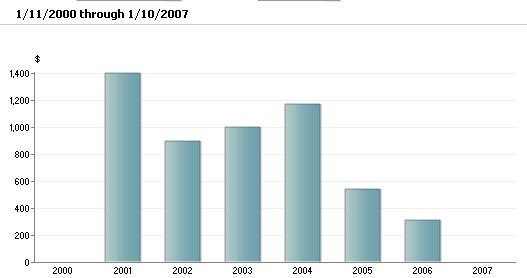As mentioned in one of the threads linked, I had trouble with "spot" electric heaters leaking and a plumber friend confirmed that they dont tend to live very long before leaking.
As also mentioned in one of the threads, I put one of these in my wifes old house before we got married. Made sense for her; the house was already torn apart, we were completely replumbing it, and her hot water uses were all at once in the morning and on weekends for dish/clothes washing. One bathroom so we got away with using the small $500 tankless unit. It produced hot water fairly immediately (huge burner)...no different from the old tank unit.
For a more than one bathroom household that uses hot water periodically throughout the day (think "ER"), the initial unit cost and retrofit installation just outweigh some savings that may not materialize at all.
My HWH started leaking 2 weeks ago and I re-re-re-reviewed the whole scenario. Only problem with the old heater was we occasionally ran out of HW (40 gallon gas unit). Hot water heating alone ran us $7.50-15.00 a month. Best possible scenario was a $1000 tankless unit that would take me 2 days to install (or about $500-700 to pay for it) might save me $3-5 per month. Worst case scenario was a cost wash or it might even cost more for the tankless since I'm regularly turning on faucets.
Decided to stick with the tank and bump it to 50 gallons. After looking at everything out there I chose a kenmore power miser 12, which is made by AO Smith and is their higher end "conservationist" model. Seemed to me that all the local plumbers were installing AO Smiths, two neighbor homes built at the same time have AO smiths and theirs arent leaking yet while my Rheem made one was, and there was some consensus that the Ruud/Rheem/

models sold through Lowes and Home Depot under the Whirlpool and GE names werent that great.
The latter might be simply force of numbers...I suspect many people just call HD or Lowes and ask them to slap one in, so higher numbers of potential complaints.
The one I got has R-16 insulation (many cheaper ones have less), an efficiency rating of .63 (the HD/Lowes and other similar models are .58; delta is about $15 a year in gas savings and qualifies for a $30 PG&E rebate), and had a faster first hour delivery and faster recovery time.
Total cost was $429-$30 pg&e rebate. Took me about 2 hours total to remove the old one and install the new one, which saved me about $300-400 in installation costs.
Pretty straightforward although you'll probably have to do a little soldering if yours isnt installed with screw on flexi lines. I just had to solder the pressure valve pipe, the original flexi water and gas supply were good enough to reuse.
And heavy. Old one was 165lbs and the new one was 195. Turned out to be not much of a problem. I just pushed the old one off the stand and rolled it out of the garage. Set the base of the new one up on the platform and then picked up the other end and 'levered' it up. Piece of thick cardboard kept the new one from getting scratched or dented.

